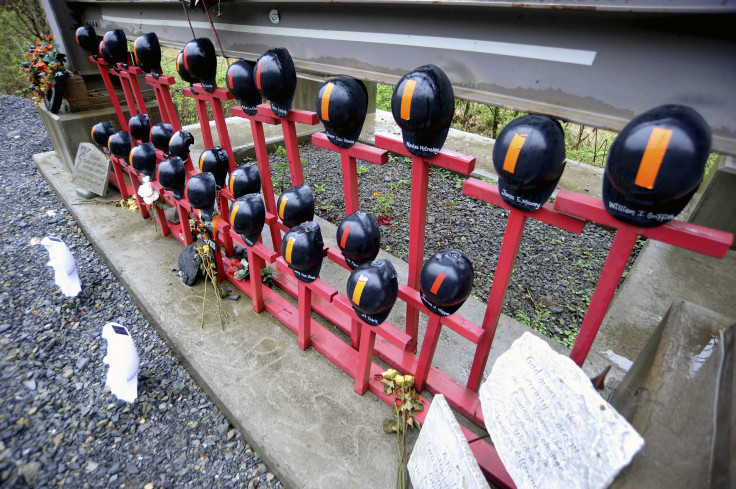Amid Industry Downturn, Kentucky Considers Ending State Safety Inspections Of Coal Mines

As an historic downturn grips the U.S. coal industry, Kentucky is considering ending state safety inspections of mines. A bill spawned by the state’s coal lobby and backed by Republican Gov. Matt Bevin would leave inspections up to the federal government alone, effectively slashing the number of mandatory visits that underground mines in the Bluegrass State receive each year by more than half.
“Even as we face this very significant downturn in production and employment, there’s been no contraction of regulators,” said Bill Bissett, president of the Kentucky Coal Association, which represents companies like Alliance Coal, Armstrong Coal and Alpha Natural Resources. “We’ve been getting a lot of calls, you know, what can we do to help right now?”
On Wednesday, a Kentucky state senate committee passed two bills that would lift some of the regulatory weight off industry. Senate Bill 224 would end mandatory state safety training for mine foremen, while Senate Bill 297 would end state inspections of mines outright. In the eyes of the coal lobby, federal inspections suffice—especially as employment and production decline across the industry. “Our point is why would the state continue this duplicative effort?” said Bissett.
Federal law mandates at least four safety inspections per year in underground coal mines. Kentucky law tacks on an additional six annual safety inspections at underground mines.
The sponsor of the bill that would end state inspections, Sen. Chris Girdler, did not respond to multiple requests for comment. Although Girdler introduced the legislation, the idea originated from the coal association, according to its president Bill Bissett. A spokesman for the state agency that oversees mining safety said the Bevin administration was supportive.
Safety experts charge the proposal puts miners at risk.
“There’s this tired mantra about overregulation,” said Tony Oppegard, a Lexington-based attorney and safety advocate who formerly served as the state’s chief mine safety prosecutor. “Well, coal mining is an ultra-hazardous occupation, that’s under the best conditions. That’s why it’s highly-regulated.”
Kentucky began requiring three additional mine inspections in 2007—one year after an explosion at Harlan County’s Darby Mine killed five miners. The history of the industry is littered with such disasters: As the Lexington Herald Leader noted Wednesday, the state’s twin safety rollback measures passed out of committee 40 years to the day that the Scotia coal mine explosions killed 26 people in Letcher County, Kentucky. Recent years have also seen a resurgence of so-called black lung disease, a fatal respiratory illness miners can contract from inhaling coal dust.
Last year, 11 coal miners died on the job nationwide, down from 16 in 2014 and the lowest amount on record. In addition to a wave of mine closures, the federal government said improved oversight helped explain the low death toll.
Inspections encourage coal operators to follow proper safety protocol, said Tony Oppegard, an attorney in Lexington, Kentucky who represents coal miners and their families in safety matters. Reducing inspections puts Kentucky miners at elevated risk, he said.
“At most mines, that’s the only time things are done by the book, are when inspectors are present,” Oppegard said. “By eliminating six inspections per year, you’re ensuring that miners are going to be working under unsafe conditions on more days per year and you’re going to heighten the risk of accident to them.”
Proponents of the safety rollback likely suffered a setback earlier this week when Democrats won elections that allowed the party to retain its legislative majority in the State House. Republicans control the governorship and State Senate, but observers say the bill faces an uphill battle in the lower chamber.
Teri Blanton, an activist with nonprofit Kentuckians for the Commonwealth, said activists would press Democrats to oppose the bill.
“The six inspections, we struggled and struggled to get that passed after the miners were killed in Harlan County,” said Blanton. “That bill was signed with the blood of coal miners from Harlan County...Every mine safety law has been signed with the blood of deal coal miners.”
© Copyright IBTimes 2024. All rights reserved.






















